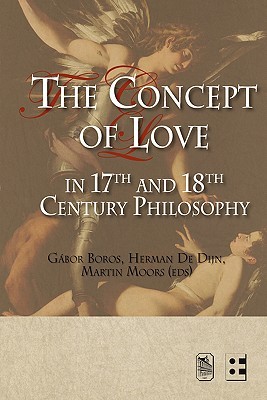
- We will send in 10–14 business days.
- Publisher: Leuven University Press
- ISBN-10: 905867651X
- ISBN-13: 9789058676511
- Format: 15.5 x 23.1 x 2 cm, softcover
- Language: English
- SAVE -10% with code: EXTRA
The Concept of Love in 17th and 18th Century Philosophy (e-book) (used book) | bookbook.eu
Reviews
Description
"Love is joy with the accompanying idea of an external cause." Spinoza's definition of love manifests a major paradigm shift achieved by seventeenth-century Europe, in which the emotions, formerly seen as normative "forces of nature," were embraced by the new science of the mind.This shift has often been seen as a transition from a philosophy laden with implicit values and assumptions to a more scientific and value-free way of understanding human action. But is this rational approach really value-free? Today we tend to believe that values are inescapable, and that the descriptive-mechanical method implies its own set of values. Yet the assertion by Spinoza, Malebranche, Leibniz, and Enlightenment thinkers that love guides us to wisdom-and even that the love of a god who creates and maintains order and harmony in the world forms the core of ethical behavior-still resonates powerfully with us. It is, evidently, an idea Western culture is unwilling to relinquish.This collection of insightful essays offers a range of interesting perspectives on how the triumph of "reason" affected not only the scientific-philosophical understanding of the emotions and especially of love, but our everyday understanding as well.
EXTRA 10 % discount with code: EXTRA
The promotion ends in 20d.23:45:18
The discount code is valid when purchasing from 10 €. Discounts do not stack.
- Publisher: Leuven University Press
- ISBN-10: 905867651X
- ISBN-13: 9789058676511
- Format: 15.5 x 23.1 x 2 cm, softcover
- Language: English English
"Love is joy with the accompanying idea of an external cause." Spinoza's definition of love manifests a major paradigm shift achieved by seventeenth-century Europe, in which the emotions, formerly seen as normative "forces of nature," were embraced by the new science of the mind.This shift has often been seen as a transition from a philosophy laden with implicit values and assumptions to a more scientific and value-free way of understanding human action. But is this rational approach really value-free? Today we tend to believe that values are inescapable, and that the descriptive-mechanical method implies its own set of values. Yet the assertion by Spinoza, Malebranche, Leibniz, and Enlightenment thinkers that love guides us to wisdom-and even that the love of a god who creates and maintains order and harmony in the world forms the core of ethical behavior-still resonates powerfully with us. It is, evidently, an idea Western culture is unwilling to relinquish.This collection of insightful essays offers a range of interesting perspectives on how the triumph of "reason" affected not only the scientific-philosophical understanding of the emotions and especially of love, but our everyday understanding as well.


Reviews